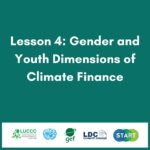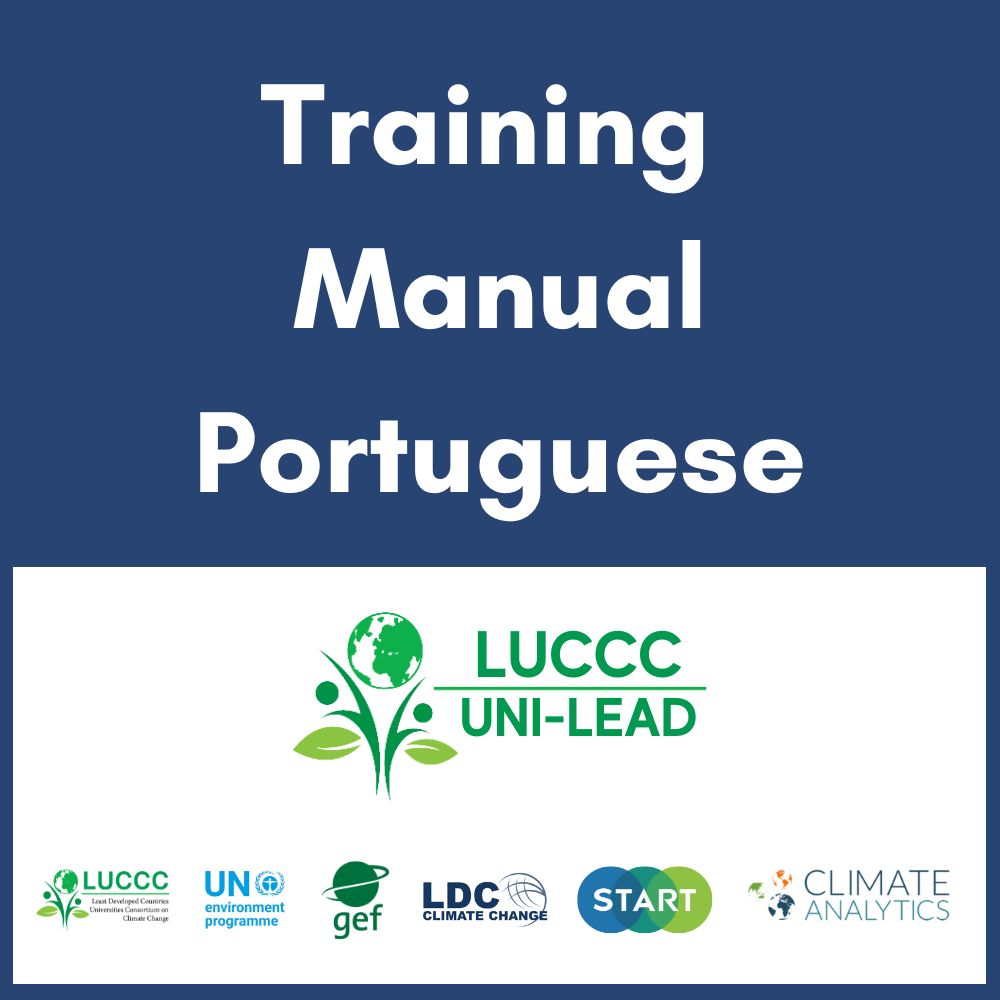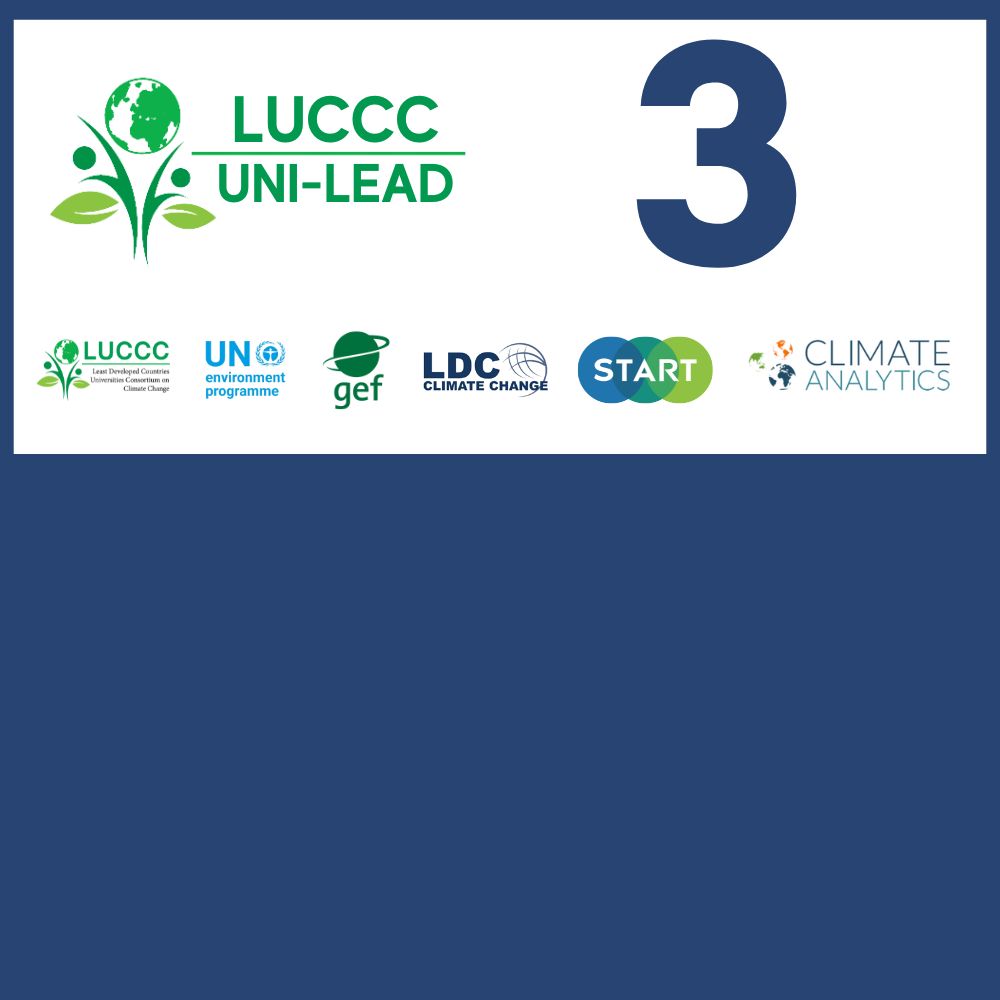Short courses
Short courses
The UNI-LEAD project has developed a series of short courses designed for LUCCC members to strengthen their understanding of, and skills for training in, key aspects of climate finance. The courses are intended to strengthen collaboration between universities and governments, and to enhance the skills and confidence of LUCCC universities to deliver climate finance training that strengthens the competencies and skills of government officials to develop fundable concept notes and proposals for accessing climate finance.

UNI-LEAD Short Courses 
Short courses 1 & 2 provide extensive background and examples for navigating the complex landscape of climate finance structures and schemes, in the LDC context. Short courses 3 & 4 explore key concepts on how to effectively incorporate gender equality and social inclusion — and how to develop a strong climate rationale, respectively — into climate finance concepts and proposals. Short course 5 provides a ‘how to’ on practical steps for developing a climate finance concept note, with a particular emphasis on developing a theory of change. The training manual provides a comprehensive overview of the content that is contained in the short-course series.
Learning Series on Gender and Youth Dimensions of Climate Adaptation and Programming
As part of the GEF project, “Strengthening Engagement and Action by the Least Developed Countries Group on Climate Change”, in 2025, the Least Developed Countries (LDC) Group and the LDC University Consortium on Climate Change (LUCCC) offered this exciting learning series on gender and youth dimensions of climate adaptation led by START and UNIDO. The five lessons are designed to strengthen understanding of gender and youth dimensions of climate change, including climate finance. Below, find links to the online course modules, live session recordings, and slide versions of the courses in English, French, and Portuguese.





Lesson 1: Foundations for Understanding the Value of Diversity in Climate Adaptation Programming
Lesson 2: Gendered dimensions of climate adaptation and programming
Lesson 3: Youth Dimensions of Climate Change Adaptation and Programming
Lesson 4: Gender and Youth Dimensions of Climate Finance
Lesson 5: Curated Tools and Approaches for Putting your Knowledge into Action







